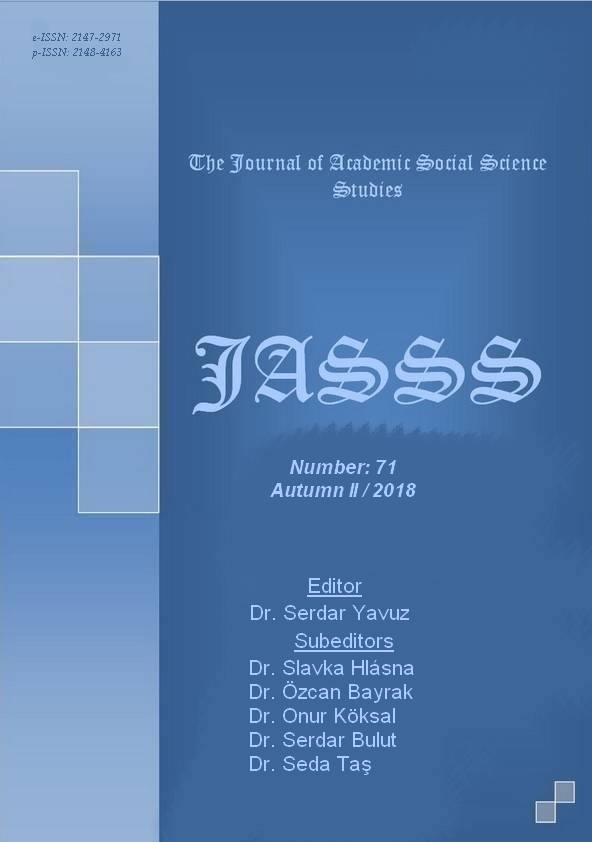Author :
Abstract
2013 -2014 eğitim-öğretim yılından günümüze kadar uygulanagelen Temel Eğitimden Ortaöğretime Geçiş Sistemi (TEOG) 2017-2018 eğitim-öğretim yılı başladıktan hemen sonra alınan ani bir kararla uygulamadan kaldırılmıştır. 1.2 milyon öğrenciyi ilgilendiren bu gelişme ile birlikte kısa bir süre belirsiz bir durum yaşansa da 5 Kasım 2017 tarihinde Milli Eğitim Bakanlığı tarafından uygulanacak olan yeni sistem açıklanmıştır. Yenilenen sistem ile birlikte temel bazı değişikliklerine hayata geçildiği görülmektedir. Bu değişiklik ile birlikte sistemin olumlu ve olumsuz yönlerine yönelik değişik görüşler dile getirilmiştir. Sınavlı ve sınavsız yerleştirme olmak üzere iki basamaktan oluşan bu sistemin ne derece işlevsel olacağı eğitim-öğretim yılı sonunda yapılması planlanan LGS sınavlarından sonra ortaya çıkacak ve elde edilen sonuçlara göre daha sağlıklı değerlendirmeler yapılabilecektir. Araştırmada Milli Eğitim Bakanlığına bağlı okullarda görev yapan Türkçe Öğretmenlerinin yenilenen Ortaöğretime Geçiş Sistemi ile ilgili görüşleri değerlendirilmeye çalışılmıştır. Bu araştırmanın amacı Türkçe Öğretmenlerinin yenilenen Ortaöğretime Geçiş Sistemi hakkındaki görüşlerinden hareketle sistem hakkında bir değerlendirme yapmaktır. Bu çalışmada görüşme metodu kullanılmış, görüşme esnasında katılımcılara altı sorudan oluşan, uzman görüşleriyle son hali verilen yarı yapılandırılmış görüşme formu uygulanmıştır. Araştırmanın örneklemini farklı illerde görev yapan 14 Türkçe Öğretmeni oluşturmaktadır. Katılımcılardan elde edilen veriler içerik analizi yöntemiyle değerlendirilmiştir. Araştırma sonunda Türkçe Öğretmenlerinin yenilenen Ortaöğretime Geçiş Sistemi hakkında daha çok olumsuz düşüncelere sahip oldukları, Türkçe Öğretmenlerinin büyük çoğunluğunun öğrencilerin ortaöğretime geçişte sınava tabi tutulmasını doğru bulduğu, ortaöğretime geçişte TEOG sisteminin yeniden hayata geçirilmesi gerektiğinin düşünüldüğü gibi sonuçlara ulaşılmıştır. Araştırma sonucunda Ortaöğretime Geçiş Sistemine yönelik çeşitli önerilerde bulunulmuştur.
Keywords
Abstract
The Basic Education Secondary Education Transition System (TEOG), which is implemented from 2013 -2014 academic year to the present day, has been abolished by a sudden decision taken immediately after the beginning of the academic year 2017-2018. The new system to be implemented by the Ministry of National Education on November 5, 2017 is announcedeventhough it has been uncertain for a short time due to this development which is related to 1.2 million students. It seems that some of the basic changes have been passedalong with the renewedsystem. Along with this change, various opinions were expressed about the positive and negative aspects of the system. How functional this system consisting of twosteps, exam and placement without examinations, will occurafter the LGS examsplanned at the end of the academic year and it will be possible to makemorehealthyevaluationsaccording to the results obtained. The researcherstried to evaluate the opinions of Turkish teachers working in the schools affiliated to the Ministry of National Education on the renewed Secondary Education System. It is the aim of this research to make an evaluation about the system in accordance with the opinions of the Turkish Teachers about the renewed Secondary Education System. In this study, the interview method was used and a semi-structured interview form consisting of six questionnaires and finalized by expert opinions was applied during the interview. The sample of the research is composed of 14 Turkish Teachers working in differentills. The data obtained from the participants were evaluated by content analysis method. At the end of the study, the results of the study are as follows, considering that Turkish teachers have more negative thoughts about the renewed Secondary Education System and most of the Turkish Teachers think that the students should be tested in secondary education. Secondary education should be rethinking the TEOG system. As a result of the research, various suggestions have been made for the Secondary Education Transition System.





